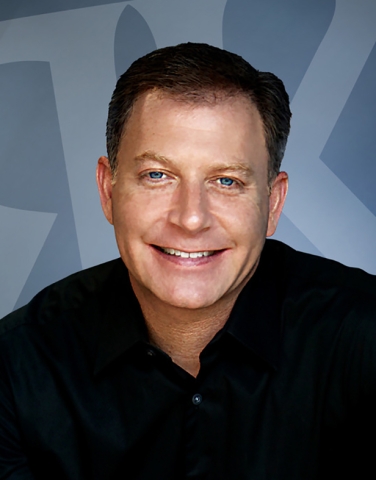Meet Ricky Kalmon, the Celebrity Hypnotist Changing Mindsets at Meetings

Ricky Kalmon isn’t your everyday motivational speaker. A mindset expert, celebrity hypnotist and motivational speaker by trade, Kalmon works to engage and inspire event groups through his customized entertainment and keynote program that blends hypnosis with high-energy mindset coaching. CEN/TSNN sat down with Kalmon to find out how a positive mental attitude can not only help us become healthier, happier and less stressed, but also more successful in our personal and professional lives.
How did you get into hypnotism?
I grew up in the entertainment business and was a child magician. I went to a hypnosis show at a corporate event and was completely blown away. I couldn’t get over what I was watching – people were having the greatest time! I had a vision of using entertainment as a great way to engage people to get them to open up, have fun and show them how valuable mindfulness can be in their professional and personal lives. And that’s what I’ve been doing now for 32 years.
Most people tend to be pretty skeptical about hypnosis. How do you reassure your event clients that it’s nothing to fear?
When people ask me what I do, I use keywords such as engagement, audience participation, high-energy, fun and interaction. I downplay what most people think of as hypnosis, which is the whole swinging-watch concept. Some people’s first response is, “he’s going to make me bark like a dog,” or “I would never let somebody else take control over my mind”—but I explain that hypnosis is not about being in a trance or controlled by somebody. Instead, it’s a state of great awareness and relaxation that brings on focus and concentration that everybody can experience.
Can you share an example of how this feels?
Have you ever caught yourself driving for 20 or 30 miles and you could only recall 10 of them? This is called Highway Hypnosis, a perfect example of how our mind can be focused on one thing and doing another. Consider professional athletes – when they’re out on the field [playing games], they’re not distracted by 75,000 fans; they’re playing in “the now,” which is a form of hypnosis. It’s basically the focus of effort to influence an outcome.
Your program is a two-part experience that involves a comedy hypnosis show followed by a keynote presentation the next day. How do these work together?
The show itself is a 60-75-minute entertainment show. I tell my audience that I’m going to demonstrate a very simple technique of how relaxation can take them to a different place of reality that will help them focus, concentrate and sleep better. I’ve always presented my show this way versus “I have this magical power and I’m going to put you in a trance,” because it’s not like that.
I then call for volunteers out of the audience, and by that time, I’m having to turn people away, because once people start to understand what I’m about to do, they want to try it. Even the quietest, most reserved audiences become highly engaged in my program.
Once the show starts, I help the people on stage get into a state of hypnosis. They turn into rock stars; they think they’re on a TV show or a flight attendant on an airplane – nothing ever personally or professionally compromising or politically incorrect, just fun situations. It’s like improv on caffeine.
Throughout the show, I’m explaining what’s happening. Finally, I tell the [audience] that I’m going to come back and teach them how these techniques can be used to improve their personal and professional lives, from sleeping better, losing weight and being happier, to being more confident, prepared, clear and accountable. Hypnosis allows you to put your positive intentions into action, and when you’re really focused on something your mind works really hard to make it happen.
Can you share a cool experience that you’ve had during one of your shows?
People almost always come up to me afterward and say [things like], “that’s not what I expected,” or “I was the skeptic with my arms crossed, but now I want more.” This can be the executive or someone who just started with a company. Sometimes, doubt or misconceptions hold us back from new opportunities — so my job is to help people put those aside and be more open.
You’ve said that mindset can be your best friend or your worst enemy. Why?
Our minds either propel us to new heights of success or hold us back based on our beliefs. For example, if we say something as simple as, “This is going to be too hard,” or “I’m overwhelmed,” this controls and frames our reality. Words are powerful tools, and the words we use affect our reality, so our mindset is based on our last belief. Even a sigh of frustration frames our mindset.
So what can we do to change our mindset?
You can either say, “it’s going to be a crappy day,” or you can give yourself permission to make the change. So literally, stop what you’re doing and write yourself a note or put in your phone: “I give myself permission to change. Sign it, because when you sign something, it has value.
The second thing is to understand the importance of awareness. If your mind believes you can achieve something, it works overtime to achieve it.
Third, realize that you are your most valuable asset. As an event planner, you put so much effort toward producing an event, but in the process, you can forget about yourself. So start your day with just a few minutes of relaxation to get clear on what you’re supposed to do. Don’t put it off, just do it.
To learn more about Ricky, go here.
Don’t miss any event-related news: Sign up for our weekly e-newsletter HERE and engage with us on Twitter, Facebook, LinkedIn and Instagram!


Add new comment